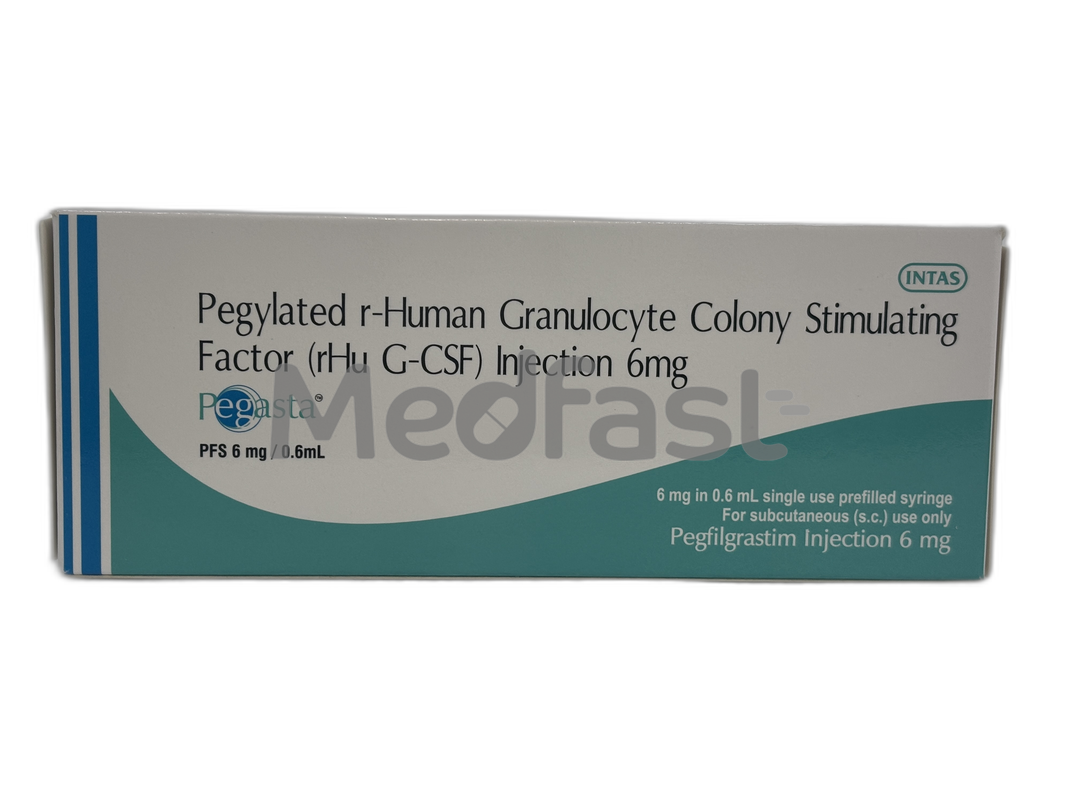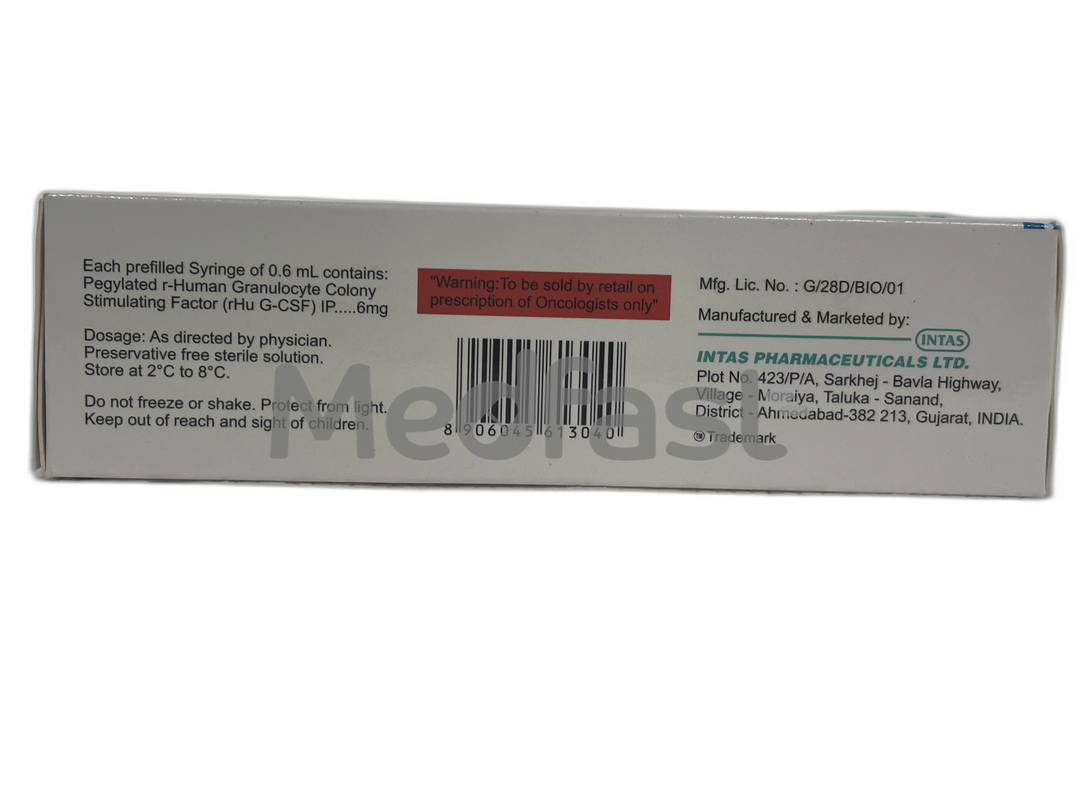Pegasta 6mg Injection contains Pegfilgrastim, a long-acting form of granulocyte colony-stimulating factor (G-CSF), used to reduce the risk and duration of febrile neutropenia—a potentially serious complication marked by fever and low white blood cell counts—caused by chemotherapy. It is also used to improve survival in patients exposed to high levels of radiation, which can severely impair bone marrow function. This medication stimulates the bone marrow to produce more white blood cells, particularly neutrophils, thereby enhancing the body’s defense against infections.
Pegfilgrastim is a biosynthetic protein derived using recombinant DNA technology in Escherichia coli (E. coli). It mimics the naturally occurring G-CSF in the body, binding to specific receptors on progenitor cells in the bone marrow and triggering their proliferation, differentiation, and activation into functional neutrophils. This is critical for patients undergoing chemotherapy, as white blood cells are often significantly depleted during treatment, leaving them vulnerable to infections.
Before starting Pegasta 6mg Injection, inform your healthcare provider if you have any history of liver or kidney problems, infections, cardiac conditions, or a family history of kidney disorders. It is important not to take this medication if you have known hypersensitivity to Pegfilgrastim, Filgrastim, or any of its components. Notify your physician immediately if you experience symptoms such as left upper abdominal pain, shoulder discomfort, or breathing difficulties, as these could indicate serious complications like splenic rupture or acute respiratory distress.
The most commonly reported side effects include bone pain, muscle aches, and discomfort in the arms and legs, which are generally manageable but should be monitored. Always follow your doctor’s instructions regarding dosage and administration.


